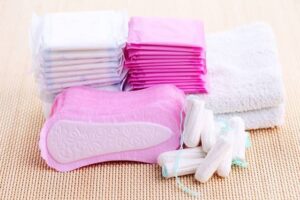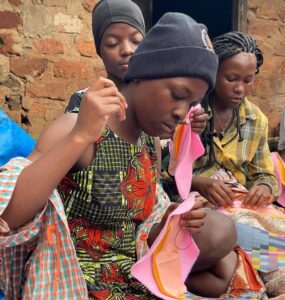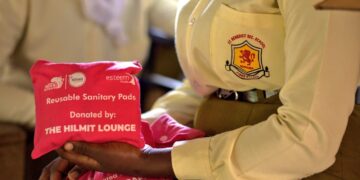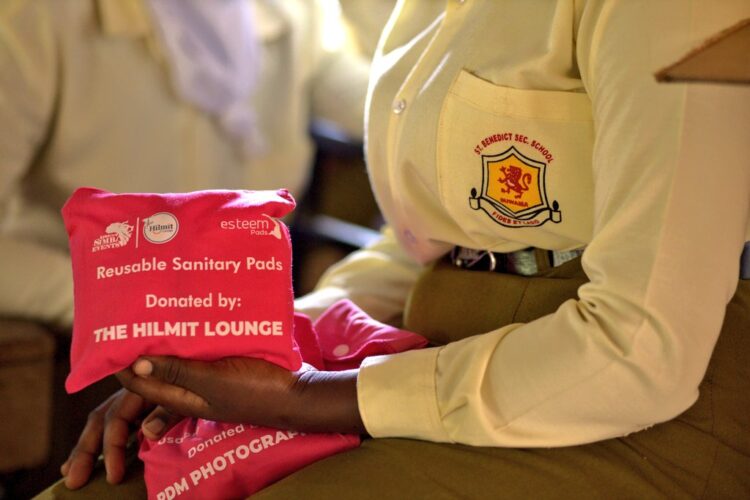OPINION
As the world marks Menstrual Hygiene Day on May 28th, Uganda stands at a critical juncture in its pursuit of gender equality. While global momentum is shifting towards the recognition of menstrual health as a human right, millions of girls and women across the country continue to suffer in silence excluded from classrooms, workplaces, and community spaces simply because of a natural biological process.
Menstrual health management (MHM) is not a privilege. It is a matter of dignity, equity, and justice. Yet in Uganda, period poverty, a lack of access to sanitary products, hygiene facilities, and menstrual health education remains rampant. According to UNICEF Uganda, 1 in 4 girls in the country misses school during menstruation, translating to over 48 days of learning lost annually. This interruption directly correlates with high dropout rates, early marriage, and a cycle of disempowerment that perpetuates gender inequality.
 Menstruation, when shrouded in stigma, compounds already existing disparities. In rural areas, 65% of women and girls cannot afford sanitary pads and resort to using unhygienic alternatives such as rags, banana fibers, or newspapers, which pose severe health risks including infections, reproductive complications, and shame. This is not merely a health issue, it is a violation of fundamental rights enshrined in both national and international law.
Menstruation, when shrouded in stigma, compounds already existing disparities. In rural areas, 65% of women and girls cannot afford sanitary pads and resort to using unhygienic alternatives such as rags, banana fibers, or newspapers, which pose severe health risks including infections, reproductive complications, and shame. This is not merely a health issue, it is a violation of fundamental rights enshrined in both national and international law.
Uganda’s Constitution guarantees the right to education, health, and dignity. Article 33(1) and (2) of the Constitution affirm that women shall be accorded full and equal dignity of the person with men and that the State shall provide facilities and opportunities to enhance the welfare of women. Furthermore, under international instruments such as CEDAW (Convention on the Elimination of All Forms of Discrimination Against Women) and the Sustainable Development Goals (SDGs) specifically Goals 3, 4, 5, and 6—governments are obligated to ensure universal access to reproductive health and education.
However, despite these commitments, the lack of State-funded menstrual products in public schools, and absence of specific legislation targeting menstrual equity, exposes glaring policy gaps. While Uganda’s National Menstrual Hygiene Management (MHM) Charter exists, it remains underfunded and largely aspirational.
Menstrual inequity does not only undermine human rights; it has a tangible economic cost. A 2022 report by Build Africa indicated that over 60% of women in Uganda miss work due to inadequate menstrual hygiene support, leading to productivity losses and reduced income. For girls, missing school regularly due to menstruation has ripple effects such as; lower academic performance, decreased confidence, and reduced chances of transitioning to higher education. Government allocations to address this are insufficient. In FY 2021/2022, the education sector budget did not include specific provisions for menstrual health. Where pilot initiatives exist, such as in some districts supported by NGOs like WoMena Uganda or AFRIpads, coverage is limited and unsustainable without consistent state support.

At the heart of the crisis lies stigma—cultural, social, and institutional. Menstruation remains a taboo in many Ugandan communities, often associated with impurity or shame. This silence further entrenches gender stereotypes and discourages open conversations about menstrual health. Legal reform and policy must rise to the challenge. Uganda must adopt a Menstrual Health and Dignity Act that recognizes menstrual products as essential, mandates provision in public institutions (particularly schools, health centers, and places of detention), and allocates funding in national budgets. Government must also compel workplaces to make menstrual hygiene products and safe sanitation accessible to all employees, especially in the informal sector where many women work without regulation or protection.
Menstrual equity must be viewed through a justice lens, not just a health or education issue. Without access to menstrual products, women and girls are denied the opportunity to participate fully in society. This disproportionately affects low-income, rural, and disabled women, making menstrual injustice a driver of wider social exclusion. We must call for free sanitary pads in all public primary and secondary schools, inclusion of MHM in national health and education policies with budget allocations, tax exemptions on menstrual products to make them more affordable, training of teachers, health workers, and community leaders on menstrual hygiene and dismantling stigma, and integration of MHM into sexual and reproductive health education across curricula.
It is time to stop treating menstruation as an invisible issue. Government, civil society, development partners, and private sector players must work in concert to prioritize menstrual health. The dignity of Uganda’s women and girls cannot wait. As we commemorate Menstrual Hygiene Day, let it not be a day of platitudes, but a rallying cry for reform. If Uganda is serious about empowering its women, it must start by ensuring they do not bleed in shame, isolation, or indignity because periods should come with dignity, not with barriers.
By Lynn Edinance Olepus,
The writer is a Human Rights Advocate & Advocacy Officer at FemJustice Uganda.








































